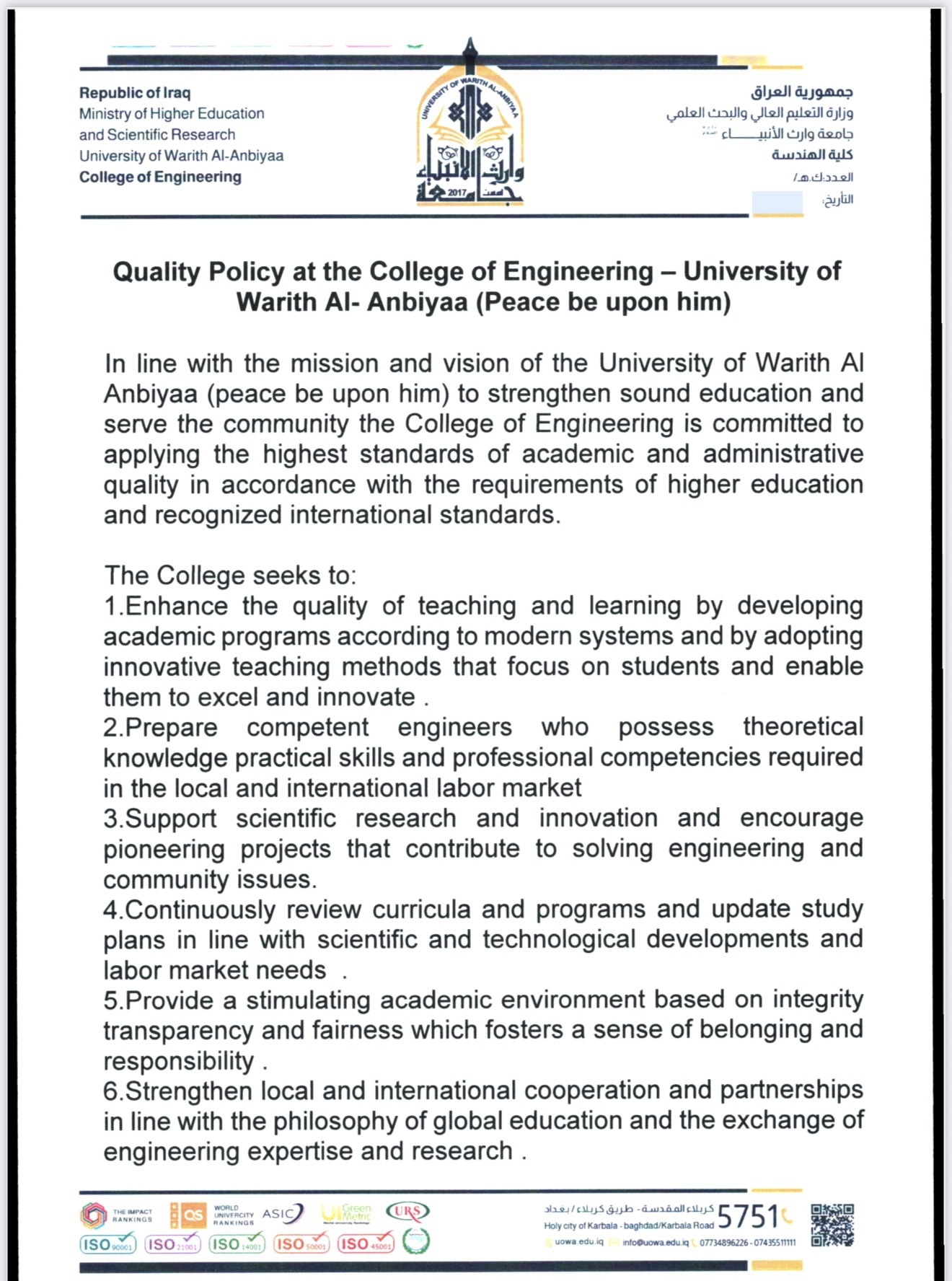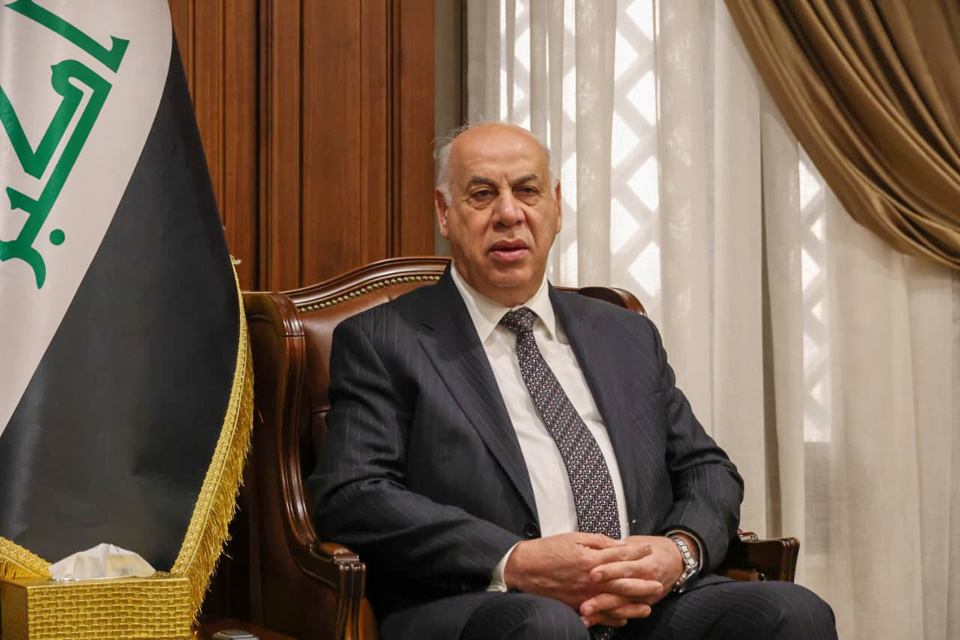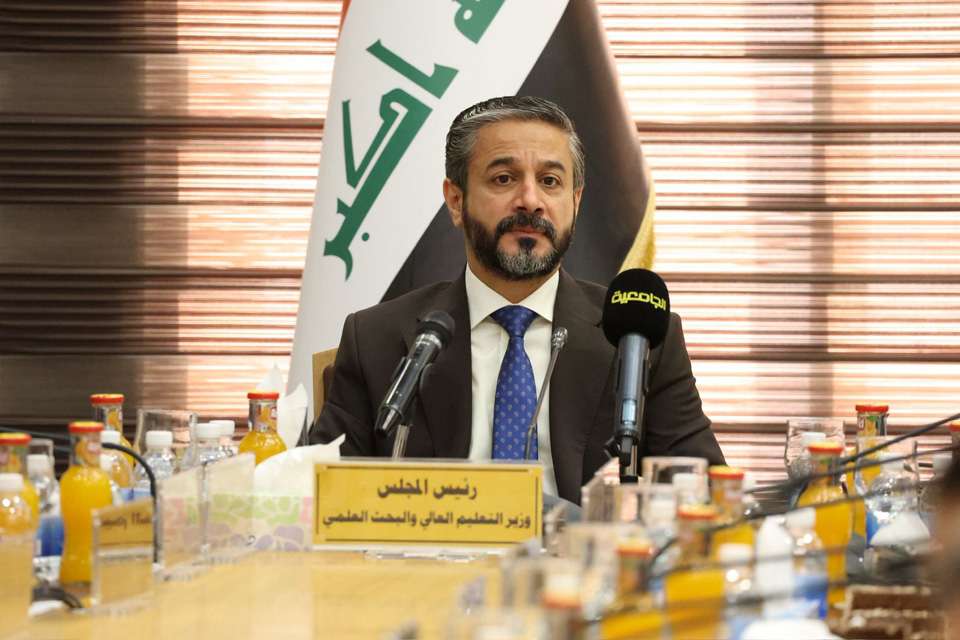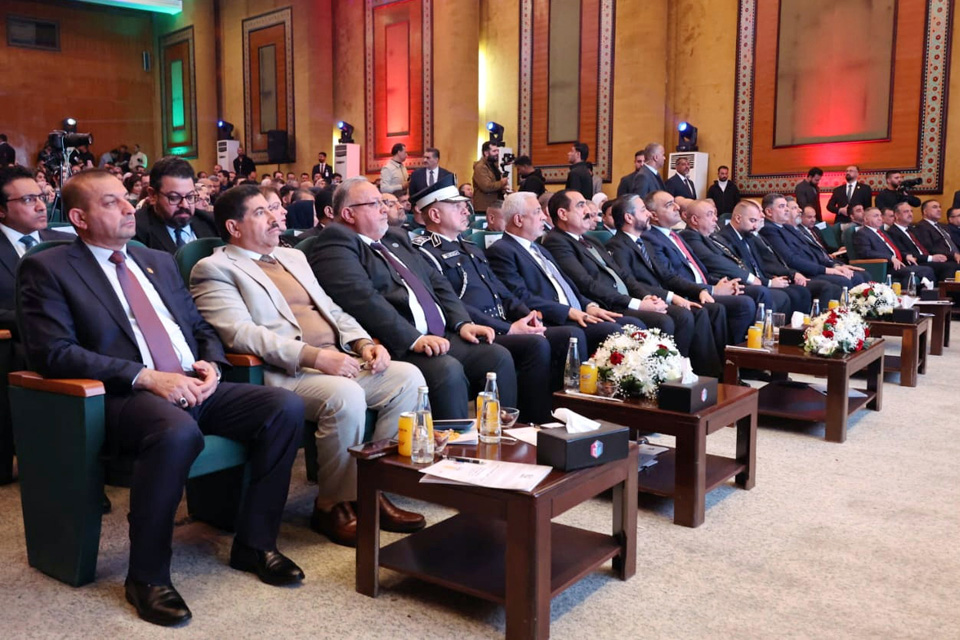Strategic and Subordinate Policies of the Faculty of Islamic Sciences/Warth Al-Anbiya University
The Faculty of Islamic Sciences at Warth Al-Anbiya University outlines its scientific and professional policies based on a set of academic principles and norms, the most important of which are:
- Commitment to authentic Islamic identity.
- The establishment of moderation and balance.
- Scientific integrity and honesty in research.
- Respect for intellectual and doctrinal diversity.
- Service to society and humanity.
- Quality and excellence in education and scientific research.
Its strategic and subsidiary policies are thus determined as follows:
First: Strategic Policies
- Academic and Educational: Developing academic programs in line with labor market requirements and international academic standards.
- Research: Encouraging rigorous scientific research in the fields of interpretation, jurisprudence, doctrine, Islamic thought, and related humanities.
- Community: Strengthening the college's role in serving the community through conferences, seminars, and awareness programs.
- Development: Contributing to the achievement of sustainable development goals (quality education, peace and justice, partnerships).
- Administrative: Establishing an effective governance system based on transparency and accountability in academic and financial management.
Second: Sub-policies
- Quality policy: Commitment to applying quality assurance standards and national and international academic accreditation.
- Scientific research policy: Supporting research projects, establishing peer-reviewed scientific journals, and encouraging international publication.
- Student Policy: Providing a safe and stimulating educational environment, with a focus on developing students' scientific, technical, and ethical skills.
- Partnership Policy: Building cooperative relationships with local and international universities and research institutions.
- Community Service Policy: Launching intellectual, awareness, and cultural initiatives that meet the needs of the community.
Strategic and Subordinate Policies of the Faculty of Islamic Sciences/Warth Al-Anbiya University
The Faculty of Islamic Sciences at Warth Al-Anbiya University outlines its scientific and professional policies based on a set of academic principles and norms, the most important of which are:
- Commitment to authentic Islamic identity.
- The establishment of moderation and balance.
- Scientific integrity and honesty in research.
- Respect for intellectual and doctrinal diversity.
- Service to society and humanity.
- Quality and excellence in education and scientific research.
Its strategic and subsidiary policies are thus determined as follows:
First: Strategic Policies
- Academic and Educational: Developing academic programs in line with labor market requirements and international academic standards.
- Research: Encouraging rigorous scientific research in the fields of interpretation, jurisprudence, doctrine, Islamic thought, and related humanities.
- Community: Strengthening the college's role in serving the community through conferences, seminars, and awareness programs.
- Development: Contributing to the achievement of sustainable development goals (quality education, peace and justice, partnerships).
- Administrative: Establishing an effective governance system based on transparency and accountability in academic and financial management.
Second: Sub-policies
- Quality policy: Commitment to applying quality assurance standards and national and international academic accreditation.
- Scientific research policy: Supporting research projects, establishing peer-reviewed scientific journals, and encouraging international publication.
- Student Policy: Providing a safe and stimulating educational environment, with a focus on developing students' scientific, technical, and ethical skills.
- Partnership Policy: Building cooperative relationships with local and international universities and research institutions.
- Community Service Policy: Launching intellectual, awareness, and cultural initiatives that meet the needs of the community.



